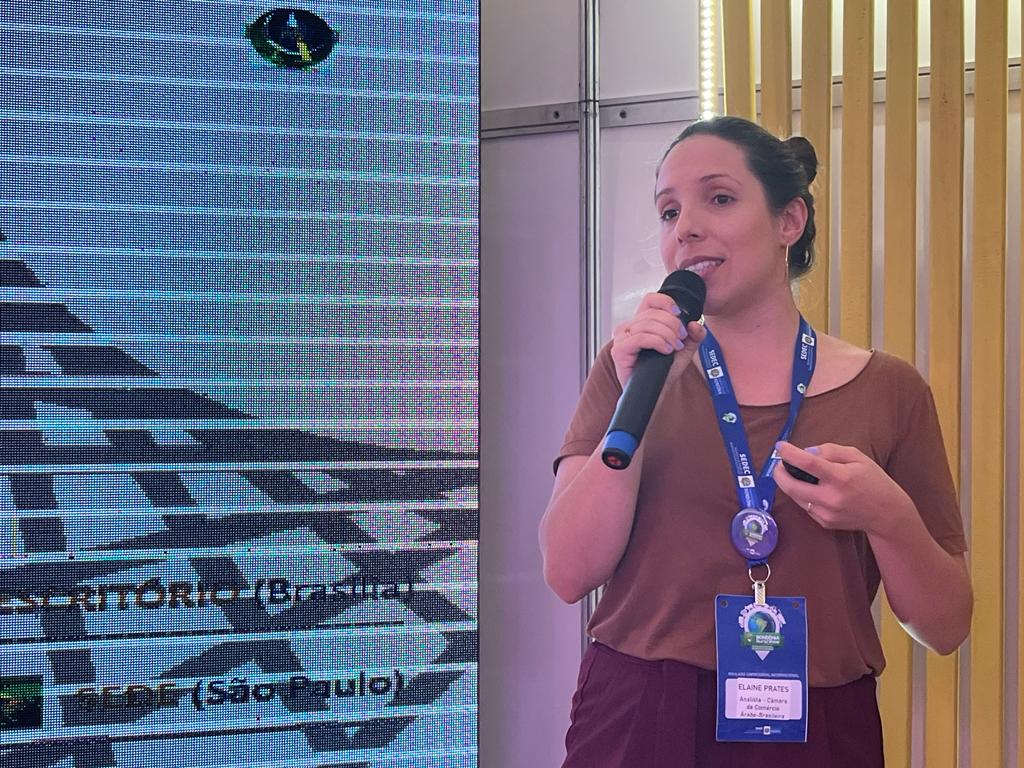Ji-Paraná – The leading opportunities for the Brazilian state of Rondônia to attract Arab trade and investments are in sustainability and food security projects, said Arab Brazilian Chamber of Commerce (ABCC) Institutional Relations analyst Elaine Prates in her presentation on the Arab market and opportunities of trade between the state of Rondônia and the 22 Arab League states during the Rondônia Rural Show on Wednesday (24).

“The Arab countries have the potential to invest in countries and foreign projects aiming at sustainability and food production,” said Prates. The Arab countries in the Gulf, whose economy is mostly oil-based, have invested heavily in renewable energies not only in their own countries but in other countries, too, and food security is one of the most relevant issues for the Arab states, which rely on imports to feed their populations.
“Rondônia stands out in the North region for its low-carbon agriculture and fish farming. The state has a clean energy mix and the potential for sustainable, innovative solutions,” she said.
Prates said a key factor that makes trade with the Arab countries attractive and competitive is the Mercosur-Egypt free trade agreement that cut commercial tariffs to zero on various items.
Algeria is the top Arab buyer of goods from the state of Rondônia, followed by Egypt, the United Arab Emirates, Tunisia, Saudi Arabia, and Morocco. The Northern state of Brazil exports mainly soybeans, beef, maize, animal fat, and lumber to the Arab market. “Rondônia has the potential to export sugar, coffee, açaí, cacao, nuts, fish and other refrigerated goods to the Arab countries,” said Prates.
On the other hand, Rondônia imports more from Egypt, followed by Jordan, Saudi Arabia, Morocco, and Algeria. The leading imports are fertilizers, polymers, and rubber tires. “There’s potential for imports of fine products from the Arab countries like olives, olive oils, and dates. There’s also potential for oil byproducts, too,” the analyst said.
Prates also participated in the show’s panel “Renewable Energies: The Future for the Sustainable Development” that also featured Hub Verde senior manager Luis Henrique Capanema Pedrosa, solution energy firm Helexia commercial coordinator Allan Cavalcante, and moderation by the head of Communication & Marketing of IEBT Innovation, Paula Isis. Discussions included main challenges for the companies to use renewable energies, the role of public policy in the field and the role of the companies and the society in the transition to a sustainable economy.
The journalist traveled at the invitation of the Secretariat for Economic Development of Rondônia (SEDEC).
Read more on Rondônia:
- Patrícia Olve, the queen of pirarucu leather
- Ice cream brand features native ingredients of Rondônia
- Cacaulândia: Chocolate from Rondônia named after city
- Ascenergy sells Brazil’s largest drone for agriculture
- Fish, coffee, cocoa, açaí: Export potential of Rondônia
- Rondônia’s Amazon Robusta coffee more and more sustainable
- Rondônia Rural Show holds event to internationalize state
Translated by Guilherme Miranda




